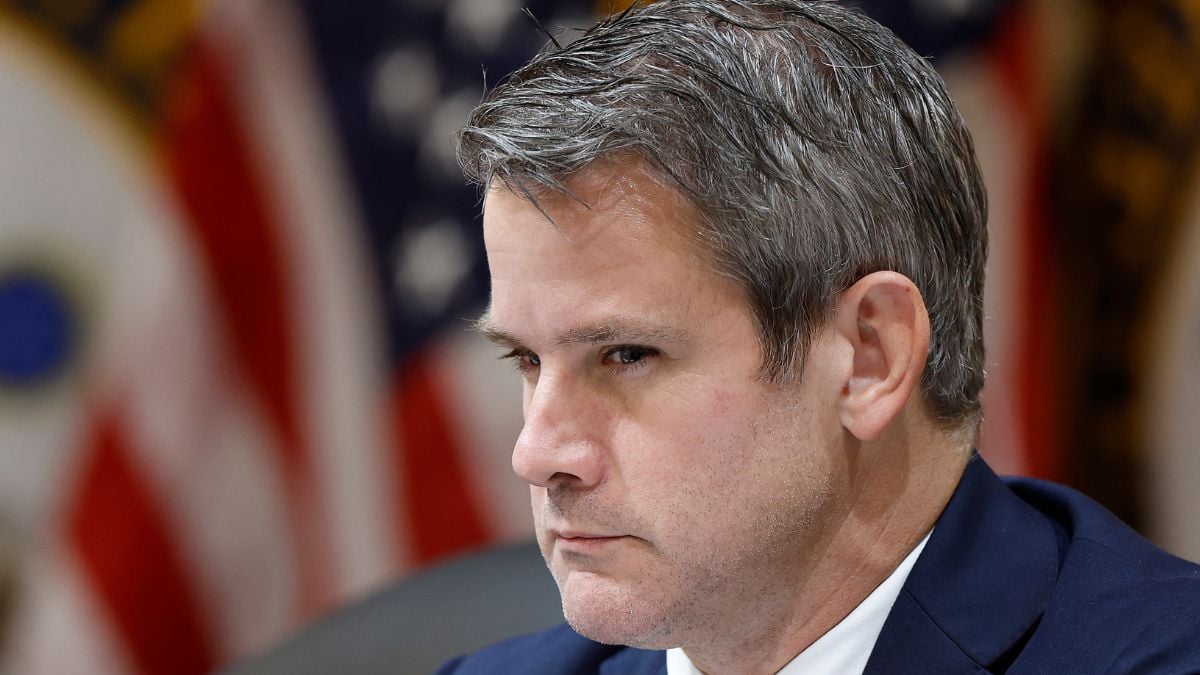
(Photo by Anna Moneymaker/Getty Images)
His worst fear confirmed.
Former Congressman Adam Kinzinger has never been one to mince words, especially when it comes to Donald Trump.
His latest critique landed squarely on the former president’s newly unveiled $250 “visa integrity fee,” a measure that has left international travelers, tourism advocates, and even some lawmakers scratching their heads. True to form, Kinzinger didn’t hold back.
The new fee, buried in the sweeping “One Big Beautiful Bill Act,” is essentially a toll for foreigners hoping to visit the U.S. on a non-immigrant visa. While proponents argue it’s aimed at bolstering visa compliance and funding travel infrastructure, critics like Kinzinger see it as yet another unnecessary obstacle at a time when the U.S. desperately needs to rebuild its appeal on the global stage.
Here’s how it works: Visitors from countries that require a non-immigrant visa to enter the U.S. will now have to pay a $250 fee before they even board a plane. This fee is in addition to the already-required Form I-94, whose price is also set to quadruple from $6 to $24. The $250 fee is refundable — but only if the traveler complies with all the terms of their visa. However, if a visa is denied, no refund will be issued.
To add a layer of uncertainty, there’s no set start date for this fee, though it’s expected to go into effect soon. And because the legislation ties the amount to inflation, travelers can expect it to creep even higher after 2026. The fee is part of a broader spending bill that touts investments in air traffic control, Customs and Border Protection, and other travel-related infrastructure. While these upgrades are undeniably necessary, critics argue that funding them through a tax on foreign visitors is shortsighted, particularly when the U.S. is already facing stiff competition from other destinations for global tourism dollars.
According to the U.S. Travel Association, foreign travelers spent over $180 billion in the United States in 2024. This figure is more than all agricultural exports combined. Slapping a hefty fee on these travelers risks driving them to other destinations where their money — and presence—will be more welcome. And then there’s the question of fairness.
For visitors from wealthier countries with visa waiver agreements, the fee doesn’t apply. That means the burden will fall disproportionately on travelers from developing nations. Kinzinger is saying what many Americans are thinking. Sure, we want secure borders and efficient travel systems, but not at the cost of alienating the very people who contribute to our economy and enrich our culture.



Published: Jul 20, 2025 11:57 am